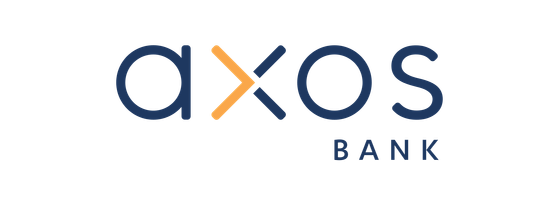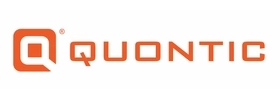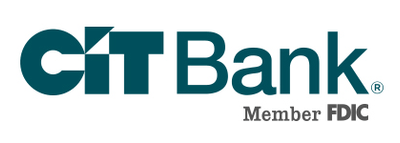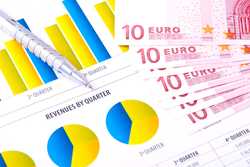What Are NSF Fees And How to Avoid Them?

Our evaluations and opinions are not influenced by our advertising relationships, but we may earn a commission from our partners’ links. This content is created by TIME Stamped, under TIME’s direction and produced in accordance with TIME’s editorial guidelines and overseen by TIME’s editorial staff. Learn more about it.
When you spend more money than you have in your checking account, you may be charged an NSF fee. Short for “nonsufficient funds,” NSF fees can be very costly, particularly when you’re already scraping by with a low account balance. With the right planning or by choosing the right bank account, you may be able to avoid NSF fees for good. Learn more here about NSF fees and the steps you can take to avoid them.
NSF fees, sometimes called overdraft fees, are charges for going below a zero balance in your bank account. For example, if you have $100 in your bank account and spend $150 with your debit card, you would be overdrawn by $50. Many banks allow overdraft transactions but charge a fee for the service.
Depending on your balance, spending, and bank, you could wind up with multiple NSF fees in a single day. If you start the day with $45 in your account, then go to the gas station and spend $50, another $5 for a coffee, and $12 on lunch, you could suffer the pain of three NSF fees.
Banks charge fees described in their deposit account agreement. If you search the fine print, you’ll find exactly how your bank assesses these fees and what you can do to avoid paying them.
Banks charge as much as $36 per NSF, according to the Consumer Financial Protection Bureau (CFPB). In 2019, those fees earned banks more than $15 billion per year, but fees declined in 2022, likely as a result of changes in bank policy, according to the CFPB. Indeed, not all banks charge overdraft fees. Several banks charge no NSF fees or offer options to reject overdrafting transactions to avoid fees.
Banks have some leeway in processing transactions, which can lead to higher fees for unsuspecting customers. For example, a bank may order transactions from largest to smallest when processing at the end of the day, which can trigger more NSF occurrences than expected.
The CFPB works to keep banks from charging surprise NSF fees, but savvy banking customers can take steps to avoid NSF fees before they land in your account.
The biggest consequence of NSF fees is the cost. Paying an average of $36 per month in NSF fees adds up to $432 per year. While banks would love to earn an extra few hundred dollars per year in fees from each customer, you would probably rather keep that money for yourself.
In some scenarios where you repeatedly overdraft and don’t resolve the problem with new deposits, a bank could decide to close your account. Those with repeat problems could have their payment behavior reported to CHEX Systems, a consumer reporting agency that banks use to review and approve new accounts. With a negative CHEX history, you could be denied new bank accounts.
While NSF fees are commonplace in banking, a handful of banks don’t charge any overdraft or NSF fees. Here’s a look at popular bank accounts, listed alphabetically, that have no NSF fees on all or some checking accounts.
 |  |  |  | |
|---|---|---|---|---|
| Checking account | Axos Rewards Checking | Axos First Checking | Quontic High Yield Checking | CIT eChecking |
| APY* | Up to 3.30% | 0.10% | 1.10% | 0.25% with a balance of $25,000 or more; 0.10% with a balance of under $25,000 |
| Min. deposit | $0 | $0 | $100 | $100 |
| Monthly fee | $0 | $0 | $0 | $0 |
While we use the terms NSF fees and overdraft fees interchangeably, there’s technically a small difference between the two. Because an NSF and overdraft can occur simultaneously, most banking customers can think of the two fees as synonyms.
An NSF fee is a charge when an account doesn’t have enough funds to pay for a transaction. Whether or not the bank honors the charge, any charge that would take your account below a zero balance is an NSF transaction. It’s possible a bank would charge an NSF fee when rejecting a charge or allowing you to overdraw your account.
An overdraft fee is a charge for processing a transaction where your account balance is less than zero. Overdrafts only occur when the purchase or transaction results in a negative balance. In this situation, the bank is effectively lending you the funds to cover the transaction.
You have a few methods to avoid NSF fees. Depending on your bank’s features, you could have a combination of these options. However, not all banks support features to avoid NSF charges.
While banks may suggest that honoring charges that take your balance below zero is a helpful service, there’s little benefit when you spend a small fortune on fees. To some banking customers, even a single overdraft fee is too much. Thankfully, you can avoid NSF fees forever with a consumer-friendly account and good banking habits.
Nonsufficient funds fees are legal. Banks must follow certain regulations regarding fees. But in general, NSF fees are allowed.
If you get charged NSF fees, you can ask your bank to waive all or some of the fees. When you ask nicely and explain the reason for the request, such as a delayed deposit, you’re in the best position to get a positive outcome.
Most banks charge overdraft fees automatically when the transaction takes place. They may show up instantly or at the end of the day. Check your bank’s customer agreement to find out how your bank handles NSF charges.
The information presented here is created by TIME Stamped and overseen by TIME editorial staff. To learn more, see our About Us page.



